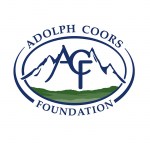andrew weil
The question of whether it is worthwhile to debate cranks, quacks, and advocates of pseudoscience has long been a contentious issue in the skeptic community. Those of you who've been reading my posts for a while know that I've always come down on the side that it is not a good idea One thing I've learned in my more than a decade of blogging, both here and at my non-pseudonymous other blog, is that advocates of pseudoscience love public debates. Indeed, whenever you see a skeptic agree to a public debate with an advocate of pseudoscience, it's a damned sure bet that it wasn't the skeptic who…
Note: I was busy doing something last night that left me no time to compose any fresh Insolence, which will become apparent by this weekend. In the meantime, however, I'm betting quite a few of you haven't seen this before, and those who have might want to discuss it further in a different environment.
Quackademic medicine.
I love that term, because it succinctly describes the infiltration of pseudoscientific medicine into medical academia. As I've said many times, I wish I had been the one to coin the phrase, but I wasn't. To the best of my ability to determine, I first picked it up from Dr…
In a week and a half, Harriet Hall, Kimball Atwood, and I will be joining Eugenie C. Scott at CSICon to do a session entitled Teaching Pseudoscience in Medical (and Other) Schools. As you might imagine, we will be discussing the infiltration of pseudoscience into medical academia and medical training, a phenomenon I frequently refer to as "quackademic medicine." It's a topic that has been much discussed on this blog; so I am quite confident that we are the people to tell our audience just how bad it is, why it's happening, and why you should be concerned about it. Also, from my perpective,…
One of the consistent themes I've maintained on this blog over the years is to combat in my own small way in my own small corner of the Internet, the influx into medical academia of medicine based not on science, but on prescientific notions of disease, vitalism, and magic, such as homeopathy (which is sympathetic magic), reiki (which is faith healing), and the like. In general, we expect professional societies to maintain and support the scientific basis of medicine. Unfortunately, increasingly, medical societies have been failing us.
Here's just a short reminder of yet another example. This…
I never would have thought it possible, but it's happened.
I'm sure most of you have heard of Dr. Andrew Weil, that champion of quackademic medicine who has made it his life's mission to bring the woo into academia in the form of training programs to "integrate" quackery with science-based medicine. From his home base at the University of Arizona, he spreads the woo hither and yon throughout academia, racking up big speaking fees wherever he goes and building a multimedia empire of books, DVDs, TV appearances, and Internet presence. Not satistfied, last year in the early stages of the debate…
Yet another hat tip this morning to anjou, a regular reader, commenter, and human RSS feed on all things cancer and alternative medicine (not to mention turning me on to Vanessa Hidary, the "Hebrew Mamita" spoken-word artist).
Last night anjou brought to me a superb AP Impact article, Alternative medicine goes mainstream, from medical writer Marilynn Marchione. I know that AP has been skewered as of late by various science bloggers but this particular article by Marchione is one of the best treatments I have seen in the last two years regarding the truth behind the alternative medicine…
Yesterday, I wrote about Senator Tom Harkin's (D-IA) little woo-fest in the Senate's Committee on Health, Education, Labor, and Pensions, which he called Integrative Care: A Pathway to a Healthier Nation. I and a lot of the rest of the medical blogosphere (such as PalMD, Val Jones, and Tufted Titmouse) shook our heads in disbelief and disgust at Harkin's statement (video here) about the National Center for Complementary and Alternative Medicine (NCCAM):
One of the purposes of this center was to investigate and validate alternative approaches. Quite frankly, I must say publicly that it has…
The seemingly never-ending quest of advocates of unscientific medicine, the so-called "complementary and alternative medicine" (CAM) movement is to convince policy makers, patients, and physicians that, really and truly, it no longer deserves the qualifier of "alternative," that it is in fact mainstream and even "scientific." That very search for respectability without accountability is the very reason why "alternative" medicine originally morphed into CAM in order to soften the "alternative" label a decade or two ago. Increasingly, however, advocates of such highly implausible medical…

